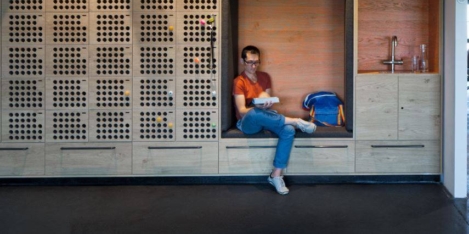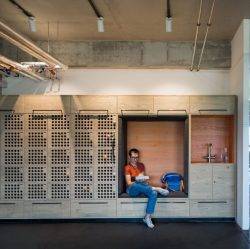May 2, 2019
UK should phase out greenhouse gas emissions by 2050, claims government report
 The UK can end its contribution to global warming within 30 years by setting an ambitious new target to reduce its greenhouse gas emissions to zero by 2050, the Committee on Climate Change (CCC) has said in a report today. But the habits of people and organisations will have to change dramatically. Ten years after the Climate Change Act became law, now is the right moment to set a more ambitious goal. Achieving a ‘net-zero’ target by the middle of the century is in line with the UK’s commitment under the Paris Agreement; the pact which the UK and the rest of the world signed in 2015 to curb dramatically the polluting gases that cause climate change. (more…)
The UK can end its contribution to global warming within 30 years by setting an ambitious new target to reduce its greenhouse gas emissions to zero by 2050, the Committee on Climate Change (CCC) has said in a report today. But the habits of people and organisations will have to change dramatically. Ten years after the Climate Change Act became law, now is the right moment to set a more ambitious goal. Achieving a ‘net-zero’ target by the middle of the century is in line with the UK’s commitment under the Paris Agreement; the pact which the UK and the rest of the world signed in 2015 to curb dramatically the polluting gases that cause climate change. (more…)









 Sage has released its annual
Sage has released its annual 










 The UK now ranks tenth globally when it comes to happiness in the workplace. Austria (690), Spain (682), United States (719), France (672) and Germany (675) are all above the UK in rating workplace happiness. To date, over 10,000 people globally have taken the free
The UK now ranks tenth globally when it comes to happiness in the workplace. Austria (690), Spain (682), United States (719), France (672) and Germany (675) are all above the UK in rating workplace happiness. To date, over 10,000 people globally have taken the free 
 Not-for-profit, wellbeing provider Westfield Health has launched an online initiative to support workplace health and wellbeing which will educate employers across the UK on how they can make a positive difference within their organisation. With over half (54 percent) of businesses reporting that they don’t have any measures in place to support the health and wellbeing of their staff,
Not-for-profit, wellbeing provider Westfield Health has launched an online initiative to support workplace health and wellbeing which will educate employers across the UK on how they can make a positive difference within their organisation. With over half (54 percent) of businesses reporting that they don’t have any measures in place to support the health and wellbeing of their staff, 


 Workers in the UK are putting the longest hours in the EU, according to a new
Workers in the UK are putting the longest hours in the EU, according to a new 








May 3, 2019
Is stress killing creativity and innovation in your organisation?
by Alf Rehn • Comment, Wellbeing
(more…)